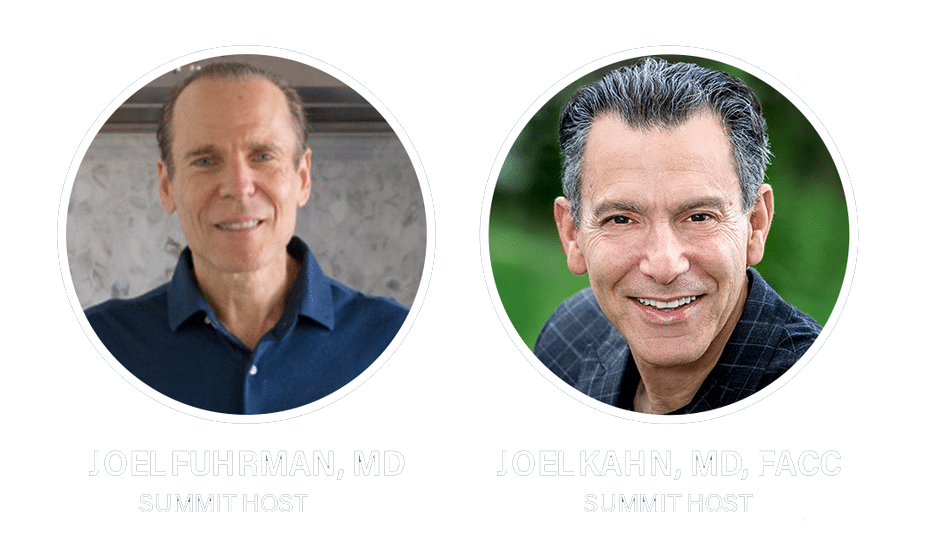|
Getting your Trinity Audio player ready...
|
“How about a natural therapy for blood pressure, for anxiety, for depression?” asks Dr. Joel Kahn.
Joel Kahn, MD, FACC of Detroit, Michigan, is a preventive cardiologist and a Clinical Professor of Medicine at Wayne State University School of Medicine. Dr. Joel Kahn is also the founder of the Kahn Center for Cardiac Longevity in Michigan and the author of several books on heart health and integrative medicine.
Today, he has important information to share regarding a study that concerns us all. What if you could lower daily asthma, psychotropic, or antihypertensive medication by a third or more? Imagine if you could do this by increasing the number of times you are exposed to nature. That is exactly what this study found.
In this video, Dr. Joel Kahn shares the results of a new study that reveals the cross-sectional associations of different types of nature exposure with psychotropic, antihypertensive, and asthma medication.
Nature Can Have A Positive Impact on Mood
For context
It’s been widely known that exposure to nature can have a positive impact on mood by reducing stress, increasing feelings of calm and relaxation, and boosting overall mental well-being.
For example, exposure to natural environments like parks, forests, and bodies of water has been thought to improve mood and reduce symptoms of depression and anxiety.
However, reviews of previous studies made on this topic have evaluated the evidence and found it to be inconsistent or suggestive.
Enter Dr. Turunen
Dr. Anu W. Turunen of the Department of Health Security from the Finnish Institute for Health and Welfare in Kuopio, Finland, led a cross-sectional study to find consistent, statistically significant evidence to back this claim.
What did the study find?
Regardless of your socioeconomic status, you can lower your dependence on psychotropic, antihypertensive, and asthma medication by increasing the frequency with which you visit green and blue spaces.
Reversing Heart Disease Naturally
“I’m always looking for clues like this to try to reduce or avoid medication in my practice,” states Dr. Joel Kahn, “and I’m sure you are looking for that too,” he adds.
As a preventive cardiologist, Dr. Joel Kahn specializes in preventing and treating heart disease. In general, preventive cardiologists focus on helping patients maintain optimal heart health and reduce the risk of developing heart disease through lifestyle changes, medical treatments, and other interventions.
The goal of preventive cardiology is to reduce the risk of heart disease and promote heart health in individuals, regardless of their current heart health status. This type of medicine places a strong emphasis on lifestyle management to reduce the risk of symptoms and reverse heart disease naturally.
Dr. Joel Kahn is also the Co-Host of the upcoming Reversing Heart Disease Naturally Summit happening from February 28th to March 7th.

- Access the Reversing Heart Disease Naturally Summit
Learn from top leaders in the field the skills you need today.
Shinrin-yoku, or Forest Bathing
“You’ve probably heard of Forest Bathing,” says Dr. Joel Kahn, “for the past 30 years in Japan, this has been a common practice,” he adds.
Forest bathing, also known as Shinrin-yoku, is a practice originating in Japan that involves immersing oneself in nature to improve health and well-being. The practice involves spending time in green spaces or other natural environments, such as bodies of water, to gain better psychological and physiological advantages and health.
Studies have shown that spending time in nature can lower levels of the stress hormone cortisol and improve mood, as well as boost the immune system. Forest bathing is considered a form of ecotherapy and is growing in popularity in recent years.
Immerse Yourself In Nature
“You have to go to them!” Exclaims Dr. Joel Kahn, referring to forests, parks, lakes, and other bodies of water.
“But seeing Green or Blue views can also improve your health. If you can look out your house and see a lake, or a forest, or trees. That’s a nice little shortcut, too,” he adds.
Before you paint your walls blue and green, consider taking a walk to the nearest park.
Remember, it’s not the amount of time you spend outdoors that counts, but the number of visits you make that lead to the greatest improvement in your health.
Main Takeaways
Nature’s Therapeutic Potential for Health: Dr. Joel Kahn highlights the remarkable potential of nature in positively impacting various health aspects, such as blood pressure, anxiety, and depression. He emphasizes the significant role of exposure to natural environments, like parks and bodies of water, in reducing stress and enhancing overall mental well-being. A study led by Dr. Anu W. Turunen reinforces the idea that frequent visits to green and blue spaces can lead to a substantial decrease in dependence on psychotropic, antihypertensive, and asthma medications, regardless of socioeconomic status.
Preventive Cardiology and Natural Heart Health: As a preventive cardiologist, Dr. Joel Kahn focuses on maintaining optimal heart health and reducing the risk of heart disease through lifestyle changes and interventions. He underlines the importance of lifestyle management in naturally reversing heart disease and preventing symptoms. This approach involves empowering individuals to take control of their heart health and emphasizes the significance of the upcoming “Reversing Heart Disease Naturally Summit.”
Shinrin-yoku (Forest Bathing) and Health Benefits: Dr. Joel Kahn introduces the concept of “Forest Bathing” or Shinrin-yoku, a practice originating in Japan that involves immersing oneself in nature for health benefits. He explains that spending time in green spaces and bodies of water can lead to psychological, physiological, and immune system improvements. While forest bathing is a prominent example, Dr. Joel Kahn suggests that even incorporating natural views into daily life, such as observing lakes or trees, can contribute to better health outcomes. The key takeaway is that both physical immersion and visual exposure to nature can enhance well-being and potentially reduce the need for certain medications.
Videos With Joel Kahn, MD, FACC
Heart Health Is Brain Health: Staying Young To Bottom



This study Dr. Kahn shared about the healing power of nature really hits home for me 🌳💙. I’ve always believed in the restorative power of being outdoors, whether that’s taking a brisk walk in the park or just sitting by a body of water. But to see concrete evidence that regular visits to green and blue spaces can significantly reduce our reliance on medications for conditions like high blood pressure, anxiety, and asthma? That’s both astounding and deeply affirming.
Dr. Kahn’s insights remind us of the profound connection between our environment and our health. The concept of Shinrin-yoku, or Forest Bathing, from Japan 🇯🇵🌲, isn’t just poetic; it’s practical and has real health benefits. It’s fascinating to think that simply immersing ourselves in nature can lower stress levels, improve mood, and even enhance our immune system.
I appreciate Dr. Kahn pointing out that it’s the frequency of these nature visits that matters most. It suggests that even short, regular interactions with nature can be more beneficial than we might assume. It’s a reminder to all of us that sometimes, the best medicine doesn’t come from a pharmacy but from the world around us.
The upcoming Reversing Heart Disease Naturally Summit is something I’m eagerly looking forward to. With over 40 ways to keep our hearts healthy discussed, I’m all in for learning more about how we can leverage natural solutions alongside conventional medicine to live healthier, happier lives.
Let’s all make a pact to immerse ourselves more in the beauty of nature. Whether it’s a lake view from your window or a walk through the nearest park, let’s take those steps towards better health. After all, if nature offers us a way to reduce our medication needs and improve our overall well-being, it’s an opportunity we should all embrace with open arms 🌿💧.
Keep sharing the wisdom, Dr. Kahn, and I’ll keep spreading the word! 📣🌱